
Rapid Prototype Injection Molding
Rapid prototyping has been a game-changer in the product development industry; 3D printers convert three-dimensional CAD solid models into physical parts at the touch of a button. We’ve come a long way from the initial prototyping methods in the 1980s, where individually contoured pieces of paper were layered and glued together to form solid replicas of three-dimensional designs. These various 3D printing modalities, including FDM, SLA, SLS, and DLP, among many others, have revolutionized how products are developed and brought to market by allowing designers to make and test multiple iterations of designs quickly, work out issues with initial design concepts, and get instant feedback from stakeholders on design direction.
Rapid Injection Molding / Prototype Injection Molding takes product development prototyping one step further. While 3D printing is undeniably a powerful tool for early design iterations, it may not always be the best tool for the project or stage of the project. What, for example, is the purpose of the prototype? Is the complexity of the design suited for 3D printing? Or, how many parts will ultimately be needed for testing, and for what purpose? Since parts made by prototype injection molding are production equivalent, more can be accomplished by including injection molded prototypes in the Design and Development Plan. Several areas to consider when deciding if molded prototypes are right for the project are listed below:
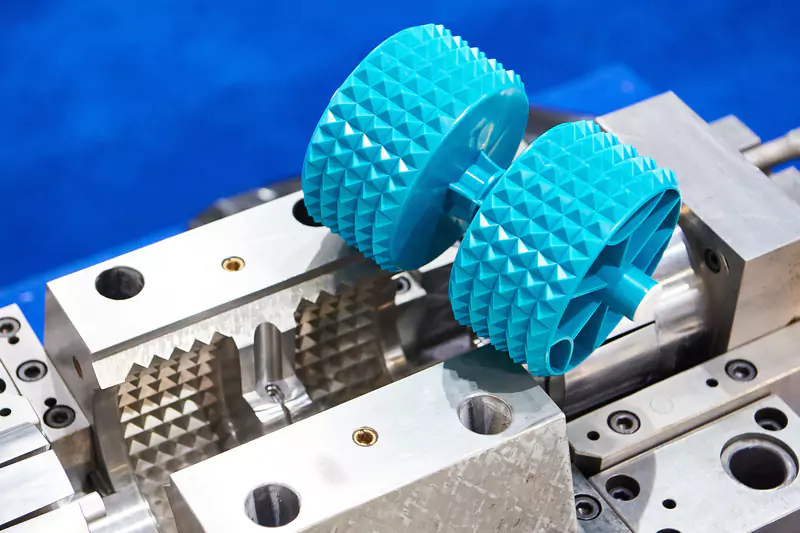
Rapid Prototyping vs. Prototype Injection Molding
Rapid Prototyping Costs
3D Printing
Cheapest option for 1-10 parts. More costly if producing 50+ parts.
Injection Molding
Initial tooling cost required, but parts are a small fraction of the printed cost after tooling is built.
Design Iteration Speed
Rapid design iterations possible by simply changing the part CAD and reprinting the part. Preferred for early development and Marketing samples.
Iterations possible but require the expense of a tooling change. Prototype tooling (single cavity, constructed in aluminum) can be more readily changed than production tooling and thus can be a valuable development tool.
Fabrication Speed
Parts take only hours to print. However, higher volume production speed is limited by printer speed and finite build platform size.
Initial lead time for prototype tooling can be 1-2 weeks. 100s of parts can be made per hour once tooling is completed.
Injection Mold Accuracy
Part measurements are fairly accurate but can vary from print to print. Accuracy is lower than injection molded parts. Layers can be visible.
Smooth finish, highly accurate parts. Measurements are typically within +/- .003″ of nominal. Dimensions are repeatable lot to lot.
Convenience
Post processing/cleaning required for 3D printed parts. Some modification may be necessary to get parts of an assembly to fit and work together.
No post-processing required. Parts should function and fit as designed immediately after molding.
Material Properties
Limited materials available. Materials do not replicate the finished materials. Parts are less durable.
Materials used will be the same as the production materials. Different materials can be molded and tested. Parts are typically more functional, especially if parts need to flex or have optical requirements.
Injection Molded Part Features
Some features must be modified to be made more robust to be printed. Parts may not be functional.
Thin features, threads, inserts and elastomeric features can be accomplished.
Project Design Considerations
Printed parts can have features that cannot be molded, like internal curved holes and thick sections. Design rules are more flexible.
Design rules must be followed that allow the mold to be opened and the part extracted from the mold. Part thickness must be consistent to ensure a good part.
Testing
Limited functional testing can be performed prior to fabrication of production tooling, since the parts are not fabricated from the final material.
Parts are production equivalent. All functional testing, including verification, validation, and process validation possible prior to commissioning an expensive production tool.
User Studies
Great for fixtures and looks-like mockups. Design changes can be made quickly based on user feedback.
Production equivalent parts replicate actual feel and function. More detailed user feedback can be obtained.
Transition to Manufacturing
Design must be modified for injection molding, molds built (5-12 weeks), and parts molded. Functional testing, assembly process validation testing, and user trials must be performed after parts are molded, and for multiple cavities. Design changes require changing all mold cavities.
All molding issues have been resolved with the prototype tool. Materials have been selected. Production equivalent parts have been tested. There is high confidence that the product will meet all requirements prior to the investment in production tooling and manufacturing delays will be mitigated.
Additional Case(s) for Prototype Injection Molding
How can spending $5K to $15K on an aluminum, single-cavity prototype injection molding tool and waiting 2 weeks for the fabrication of the tool and molded parts make product development faster and ultimately save costs? A few case studies:
Vial With Attached Cap
Prototype tools were made, and the living hinge was tested successfully for robustness and cap alignment. The cap did not seal completely on the vial, so a design change was made, the prototype tool was modified, and the parts were molded again.
This time, the cap sealed the vial, as proven through functional testing at elevated temperatures. Thousands of parts were molded, and additional testing was done with the vial in an instrument being developed.
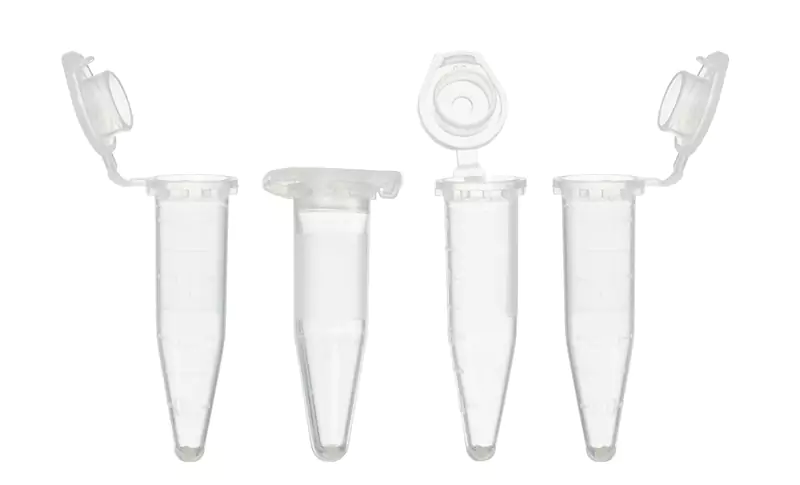
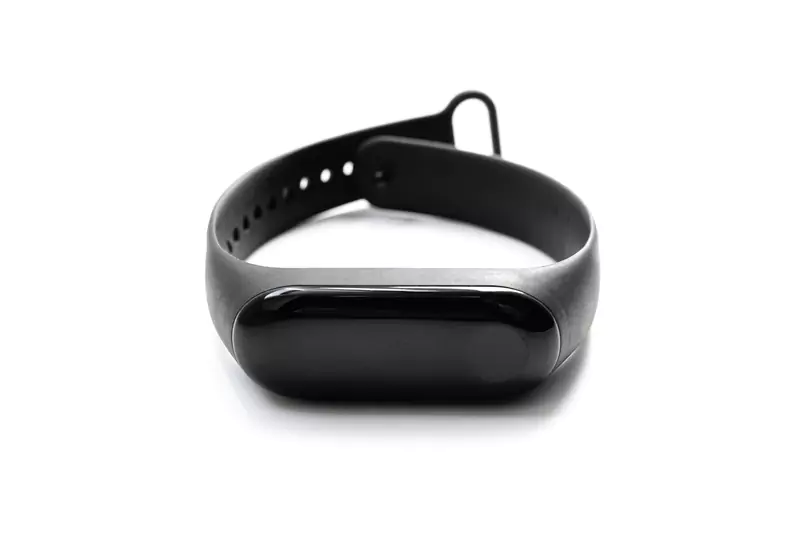
Wearable
Prototype tools were made to produce overmolded prototypes to pitch the product to investors. This part could not be effectively 3D printed to get the flexibility and elastomer function needed.
Various substrate and overmold materials were molded so that the customer could get user feedback and testing data.
IVD Cartridge
Prototype tools were fabricated. Parts were assembled with other parts using ultrasonic welding, laser welding, and the other intended manufacturing assembly processes. Fluidic assays were run on the parts. Due to issues with the assay, the molds were changed multiple times to modify fluidic channels and reservoirs, change valve assembly features, and facilitate changes to assay protocols. All issues were worked out before committing to multi-cavity, hardened steel production tooling.
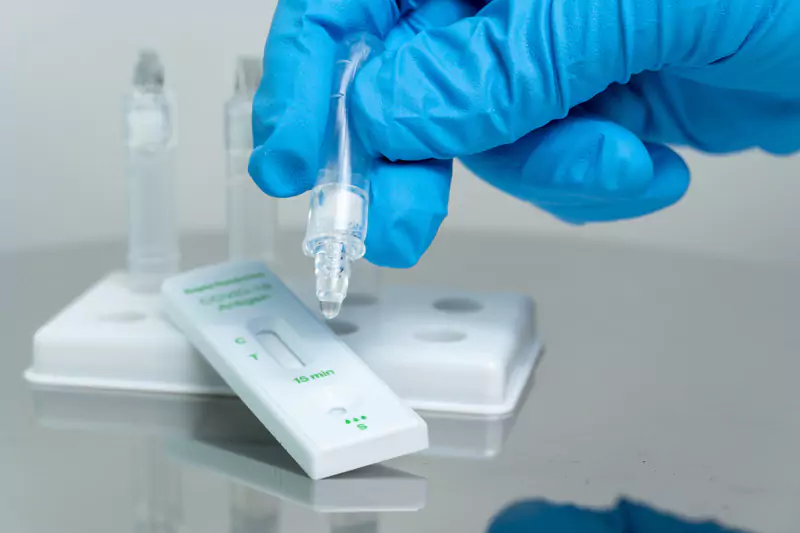
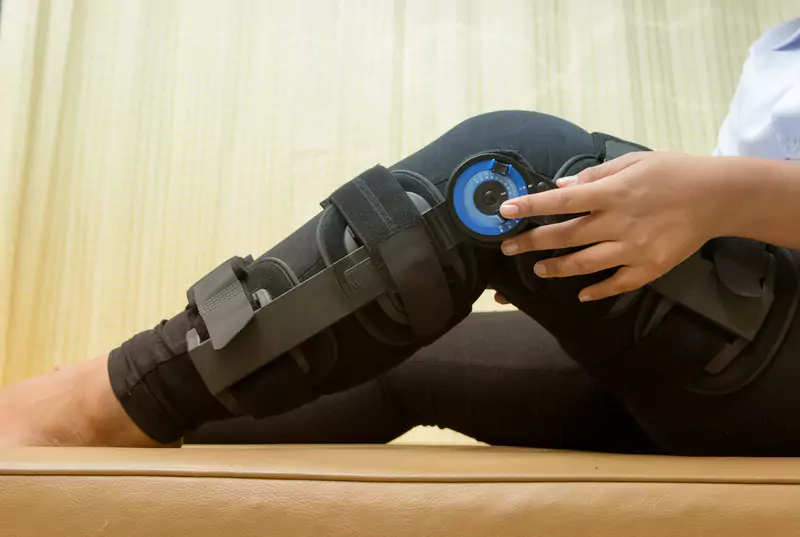
Orthopedic Brace
No prototype injection molding tools were made. When the parts were molded, the plastic sleeves did not fit on the stamped sheet metal bars, and the locking mechanism did not function as intended. 3D prototypes did not catch these issues. New injection molding tools had to be made at a cost of $60K and 2 months delay to the product release date.
Part Information & Lead Time

Lead Time
Typically, in 1 week, we will indicate the lead time when we provide your quote.

Maximum Molded Part Size
Part may be up to 8″ x 6″ x4″ (200 x 150 x 100 mm)

Maximum Part Volume
Shot volume up to 6 oz (170 g)

Tolerance
Typically <0.004″ (0.1 mm).
Tolerance of 0.001″ (0.025 mm) is possible with certain materials and part geometry. Let’s discuss your application.
Mold Production Equivalency: The Key Advantage of Injection Molding Prototypes
“Fail Fast, Fail Often” is a strategy that ultimately improves the quality of the project and saves money by identifying and solving issues early. While there are many use cases that suggest the benefits of prototype injection molded prototypes to fail AND SUCCEED early, e.g., prototyping of parts with critical functions (snaps, seals), perhaps the most compelling reason for using “real parts” is the seamless transition to full-scale production.
By producing production equivalent parts, the development team has the opportunity in advance to work out any design flaws, test different materials, and test product function. Once the design is finalized, the prototype tooling can produce 1000s of parts so that the Marketing and Sales teams can pitch the product early, the Manufacturing Group can get a head start on any assembly or processing procedures that need to be in place, and the Quality department can run tests, all while the production tool is still being built. Once production parts are available, all groups will hit the ground running on completing pre-launch tasks, all with high confidence that the product will be a success and delays have been mitigated.
Avoid Pitfalls Through Proactive Measures
John W. Berman has said, “There is never enough time to do it right, but there is always enough time to do it over.”
By identifying design flaws early on with prototypes fabricated by injection molding, companies are able to reduce product development costs significantly. This process saves time and conserves essential resources to fix problems that won’t now occur.
Partner With Protoshop For Your Rapid Prototype Injection Molding Needs
Partnering with a reliable prototype injection molding service provider in the dynamic product development landscape is crucial for success. Protoshop’s owners have over 25 years in the engineering product development and prototype injection mold making and molding business. We can bring our expertise to aid our customers in developing successful prototype parts that can transition seamlessly into production parts. We’re a big enough company to produce molds within 3-5 days and mold parts within 1-2 days, but small enough to be a flexible development partner during the design iteration and testing phases.
When it comes to your needs for prototype injection molding, don’t settle. Make Protoshop your go-to partner and see the difference for yourself. Get in touch with us right away to start on the road toward greater product development success. Our ultimate goal is for your product to be successful.

